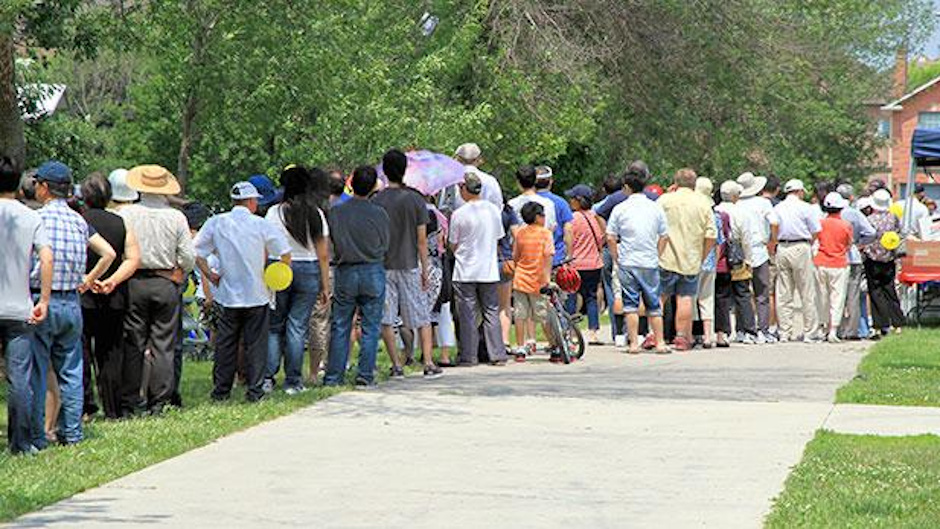The Health Rights Clinic at the University of Miami School of Law settled a lawsuit earlier this month with the state and the federal government to reopen applications for disaster food relief following a fall 2017 hurricane. The agreement will allow more than 158,000 disabled Floridians to apply for assistance.
In the aftermath of Hurricane Irma, many Floridians sustained damage to their homes and were in dire need of food assistance. Last October, tens of thousands of Floridians waited outdoors for hours in long lines to be interviewed for the food benefits, known as D-SNAP. However, thousands of people with disabilities were unable to stand in lines to apply.
On November 2, lawyers from Miami Law’s Health Rights Clinic, with Florida Legal Services, and the Community Justice Project, sued the Florida Department of Children and Families and the U.S. Department of Agriculture. The lawyers filed on behalf of the Miami Workers Center, New Florida Majority, and a class of disabled individuals claiming that the system discriminated against those with disabilities who could not endure the conditions.
Because of the lawsuit, DCF requested that USDA waive its in-person D-SNAP interview requirement to allow telephone interviews for elderly or disabled applicants. USDA granted this waiver for the first time in its history.
In the fall, DCF permitted only those who had pre-registered to seek relief via phone interview. Over 4,400 successfully did so.
The Health Rights Clinic and other advocates remained concerned about those who were unable to pre-register. "Pre-registration was never required to receive D-SNAP, and now our clients who couldn’t pre-register have been left out of this relief,” said Professor JoNel Newman, director of the Health Rights Clinic.
The lawsuit continued, seeking the same relief for persons who couldn’t pre-register, like Shiana Barbosa, a Marine veteran and mother, who has suffered a broken back and two traumatic brain injuries. “She tried to pre-register but was unable to do so. Simple justice requires that she be treated fairly,” said Cindy Huddleston, an attorney at Florida Legal Services.
The parties have now agreed to settle the case on behalf of Barbosa and others. DCF located over 158,000 persons who registered a phone number but could not complete pre-registration.
DCF sent a text on May 4 to those affected, writing that if their disability prevented them from attending a D-SNAP application site, they might be eligible to apply for the benefit.
"The clinic helped me 100%," said clinic client Theresa Clyburn. "They were very professional, very sympathetic to my needs, and they had my back."
Applicants will still need to have to attest in the phone interviews, which began last week, to income levels that are at or below an established benchmark.
“This has the potential to benefit more than 150,000 individuals who lost subsistence last fall, perhaps awarding persons with disabilities as much as $47 million in food aid,” said Newman. “We could not be more pleased with DCF’s effort to make things right for these people.” DCF is also committed to changing its process going forward.

